Michael Walters
Notes from the peninsula
Holding
I’m going through an uncomfortable phase. My creative projects feel stale. It’s an effort not to check the news. My YouTube algorithm has been infected with news influencers. The people I follow on Bluesky are understandably incensed by what’s happening in the world, so the news cycle plays out there too. I need to take some time away from being online.
It sounds pretentious, but I sense there’s something useful for me in the ideas of Carl Jung mixed with Zen philosophy. Both address the work of living from different perspectives. Jung believed in individuation, becoming whole through the work of interpreting dreams, assimilating the Shadow, confronting the Anima, and encountering the Wise Old Man. Zen Buddhism is about accepting all thing-events as equal, developing a still mind, compassion for all living things, and moving in simple, direct ways to do what is right in each moment.
Things are as peaceful in my life as a whole as they’ve ever been. I’m healthy, my family is thriving, we’re secure in our home and jobs. Something is bothering me I can’t pinpoint. There’s movement under the surface of my mind towards change. I’ll slow things down, do some reading, and observe.
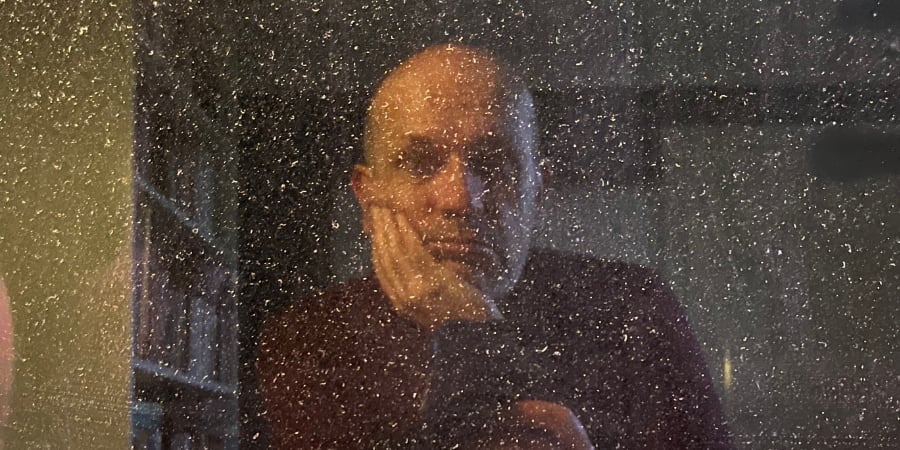
What’s good to share?
I noticed this week that my Bluesky spring was going dry. It took a couple of days, but I caught myself being—what’s the best word, inane, clichéd, boring?—and so I did what I always do, I started deleting the chaff from my feed. I don’t know why it matters to me in such a transitory medium what my last month’s posts look like. I suppose I’m thinking about how I come across to potential new readers. It’s also because I’m a natural-born (word killer) editor.
I’m playing with YouTube-style videos at the moment (ffs). Patreon has added the option to host videos and also create a podcast feed from the audio. I am a tech moth to a flame. Talking to a camera alone is hard. My favourite podcasters come in pairs, in conversation about things they love, sparking and connecting off each other, but my attempts to talk about a film, Mulholland Drive, alone, felt lifeless.
YouTubers seem able to turn on the charm, possibly because they can see themselves on camera. Often they have someone else filming. I was suddenly sympathetic with all the actors recording auditions on their phones in hotel rooms (all of them!). It’s an imagined audience. It requires structure, even if that’s just a list of things to cover. The flow can easily dry up without another to prompt you. It feels silly, slipping into a persona when nobody is with you, for a future audience. And I’m still not used to how I look and sound to other people. I’m not a natural performer.
Writing is different. I have to write alone. I can rewrite to my heart’s content. I can be another person more naturally in words.
I posted a short story to Patreon this week. That’s real content. I’ve been ambivalent about doing that for years, but fuck it, I’m ready to start experimenting with new approaches. I want to create good work and lots more of it. Getting it into the world is energising.
I’m not going to second guess what other people want anymore. The true path is to say what I want to say, even if nobody’s interested, and to be myself, to become myself as fully as I’m able, even when that pushes people away.
The whole shebang
Tomorrow’s the end of February. Mum died eleven years ago. This month has involved a last minute writing retreat, two replaced bathrooms, ongoing physio rehab, my sister and family coming to visit, unexpected and unrealistic work deadlines, and the news showing the United States government turning Chaotic Evil. On Bluesky, I continue to stick to my schtick of noticing daily details that are true to me, sometimes amusing and offbeat, and give a little hope. It helps me at least.
The bathrooms are almost complete. The tiles look fantastic. The installers are a Polish father and son, so sweet together, and sometimes the father takes a call and I can hear children’s voices, possibly grandchildren. The son listens to a Polish radio station playing quietly while he works. As lovely as they are, it’s hard to relax, especially working from home. We’re close to getting our house back. Perhaps Tuesday next week.
The book continues to percolate and grow in my mind. I’m reading about estrangement. That’s one of the themes. I’ve started several books this month, but only finished one. The rest are hanging, a dozen or so pages in, waiting for their moment. I have decisions to make about style, voice, form, characters, the whole shebang, but I’ll continue to go at the pace I can manage. I’m more inclined to practice guitar and sing in the evenings as a respite from words and screens. That’s true play.
Glass full
Life feels tough this month. There’s a lot going on at work, I’m doing physio rehab, there are tradesmen in the house making a mess, the world seems to be in an awful place and getting worse, and I’m too tired in the evenings to read or write. I am grateful for all I have, but my body and brain is at full capacity.
I’ve been back two weeks from a five-day Arvon-run writing retreat. Eleven writers, two tutors, one massive house in rural Shropshire. It was creatively invigorating. I wrote a synopsis of my next novel, edited what I already had, and started some new chapters. The theme of the week was using other arts as part of writing practice, like music, dance, and drama. We did workshops in the morning and had afternoons free for writing, reading, walking, and tutorials.
By the last day I was wrung out and ready to come home. It was wonderful but intense. On the last evening, we all read aloud something we’d written during the week.
Returning home was a relief, but the unique atmosphere of being away with other writers in a literature-centric space is impossible to replicate at home when you have a day job and a family. It did show how hard it is, legitimately hard, to maintain focus on writing projects in ordinary life. It isn’t that I’m lazy or distracted, it‘s that I’m using most of my energy getting through the days. I’ve chosen an intense profession for my nine-to-five.
That’s helpful to recognise. It gives me something to work with. If I want to be more engaged with my literary ambitions I need to change something.
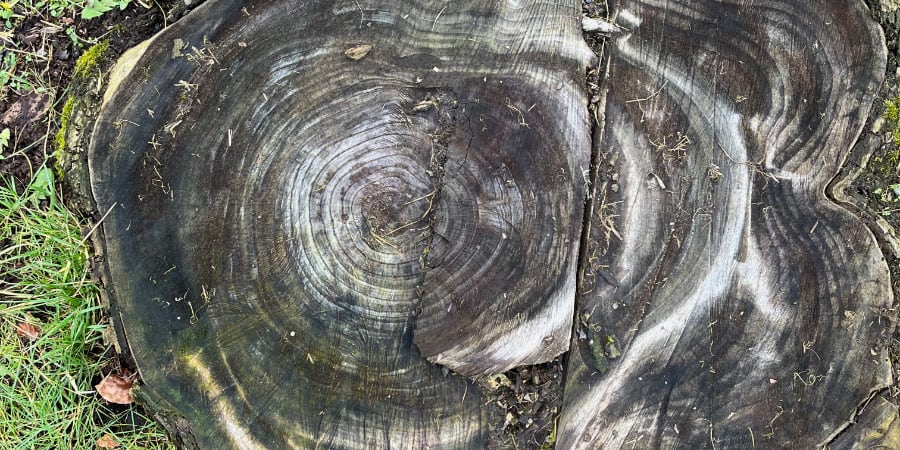
Glutes 2
At the end of August I posted about my gluteal tendinopathy. I remember writing it in a penthouse flat overlooking St Ives, an amazing spot, where I was stuck for the day because I’d messed my tendons up on the hills and flights of stairs. I was miserable. Five months on, I thought I’d give an update.
Once home from St Ives, I followed the rules in that post, knowing I had the big holiday in Sydney in October. Walking less eased the pain, but I didn’t make any progress. Gradually increasing distance and going to the gym didn’t help. In Australia, I managed the pain by pacing myself when I could and gritting my teeth to push through when I had to. It was never as bad as St Ives, but back in the UK I felt stuck and depressed.
Enter stage left another physio and shock wave therapy. I was dubious, but I was eligible because of how long I’d been suffering with tendinitis, and the therapy was recommended by NICE, so I went for it. The shock waves are acoustic and fired from a massage gun directly into the tendon through the skin. It was 2-3 minutes, once a week, for three weeks, then a break and another three weeks if required.
I don’t know if this was new or always in the mix, but I was also diagnosed with piriformis syndrome, so after the shock waves I had ‘dry needling’ in the muscle to increase blood flow. I don’t know how much good that did. Between sessions, I used a band for exercises to help with range of motion, and I did single leg squats for glute strength. My knees kept caving inwards, so this was a mental exercise as much as physical to train my legs to stay straight so my arse did the work it was supposed to.
After the Christmas break, in session four, it was clear the tendons were no longer the problem. The pain was still all around my right hip, groin and buttock, but this was the piriformis mixed with a collapse in what little flexibility I previously had. We switched to deep tissue massage and stretching. My brain was being overly protective and causing pain to stop me potentially injuring myself. It needed to learn that it didn’t have to do that anymore.
There’s a natural recovery cycle to injuries, but if we go through emotional trauma and stress, it can throw the body off and the injury becomes fixed, and the mind starts to adjust to it, stiffening the area for protection. (Which is sweet, really. Thanks, buddy.) Dad died twelve months ago. I’ll never know if that’s why this injury has hung around, but the narrative makes sense to me.
The osteoarthritis in my hip is always going to be there, but I got back from the gym a couple of hours ago, and I stretched thoroughly this morning, and I’m walking 8,500 steps on average each day, and yesterday I did 14,500 as a one-off, and yes, it’s a bit uncomfortable, but I’m fine. It looks like I’ll be able to do much more than I thought (just not running, and not tennis) if I keep working on my flexibility and my strength. Getting stronger is the key. I’m going to be fine.
(This is a bit of a boring post, but if it reaches one person who is suffering as I did, physically and mentally, and needs a bit of hope—well, keep going, my friend, it’s amazing what a good physio, stretching and strength training can achieve. If that’s you, I’m sending love.)
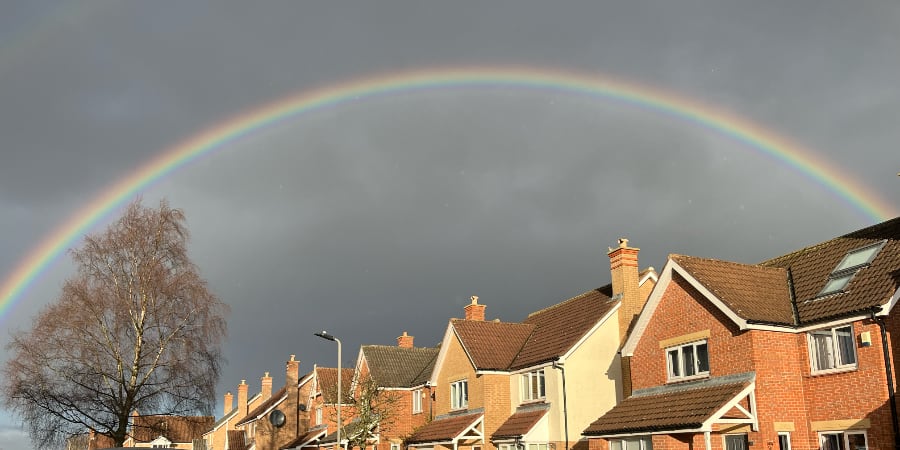
Switching
I’ve always switched between interests. When I beat myself up over it, it never ends well. Different parts of my life need attention at different times—health, family, creative writing, cinema and film, food and cooking, playing a musical instrument, learning another language, software development—when I neglect one, it invariably comes up as a desire in some shape or form sooner or later, and ignoring that intuitive reminder is when the trouble starts.
I can be too rigid around these identities. If I’m not writing, I’m not a writer. Not helpful. Life is much more interesting and complicated than that. I write in my notebook every day. I cook meals for myself and my family every day. I manage a software team in a full-time job. It’s not like in those Richard Scarry books about what adults do all day. We are not the jobs we do, and I can’t believe I need to remind myself of the trap, but it’s been in the back of my mind most of my life.
We can be everything we want to be, perhaps swimming more in the shallows than getting out into the deep water for most things, and for me, that is a healthy space to be creatively.
I know why I beat myself up over the writing for so long. It took the reality of being published (Nobody cares! There’s no money for writers! It’s a racket for the publishing industry!) and then my father slowly dying to break the narrative in my head.
We can only do one thing at a time and there’s a cost to switching. That’s true. We are also complex beings that thrive on making connections between things. A meal I make might find its way into a story I’m writing. While practicing guitar, a solution to a coding problem might pop into my head.
Intuition doesn’t care what you’re doing. It connects. When I put down fixed ideas of success and pay attention in all areas of my life, everything becomes easier. The internal drama dissolves. I feel calmer, the whole is clearer, and everything is more meaningful and fun.
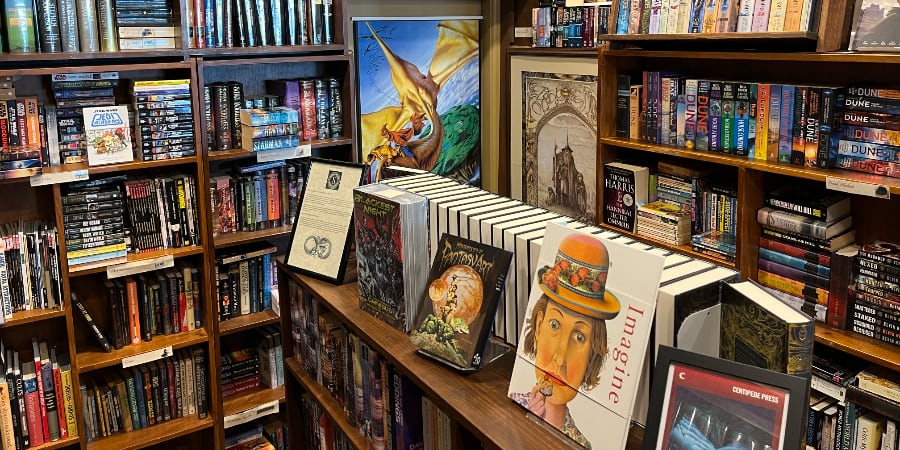
2024: Films, books, music
More lists! Nine films came out in the UK in 2024 that I gave 5 stars and a heart to on Letterboxd. (A heart means it’s to my particular taste). That rule of nine continued with nine film discoveries, nine books that got my brain engaged, and the nine albums I listened to the most on Apple Music.
My favourite films of 2024 (in order of preference)
- Civil War
- Hit Man
- Red Rooms
- The Taste of Things
- Perfect Days
- Conclave
- Anora
- The Zone of Interest
- In a Violent Nature
My favourite film discoveries (in order of preference)
- Showing Up (2023)
- Monolith (2023)
- Gothic (1986)
- Results (2015)
- The House with Laughing Windows (1976)
- Enys Men (2022)
- Death Race 2000 (1975)
- Old Henry (2021)
- Three Days of the Condor (1975)
Books that pulled me in (in order of reading)
- Assembly, Natasha Brown (2021)
- All Fours, Miranda July (2024)
- A Far Cry from Kensington, Muriel Spark (1988)
- Rare Singles, Benjamin Myers (2024)
- The Labyrinth, Amanda Lohrey (2020)
- Next to Nature, Art, Penelope Lively (1982)
- Orbital, Samantha Harvey (2024)
- Hide and Seek, Dennis Potter (1973)
- The Music of Chance, Paul Auster (1990)
Albums I listened to most on Apple Music (in order of listens)
- Radical Optimism, Dua Lipa
- The Past is Still Alive, Hurray for the Riff Raff
- Tension I/II, Kylie Minogue
- The Ballad of Darren, Blur
- Harry’s House, Harry Styles
- Dear Happy, Gabrielle Aplin
- Snow, Angus & Julia Stone
- The Visitors, ABBA
- Toxicity, System of a Down
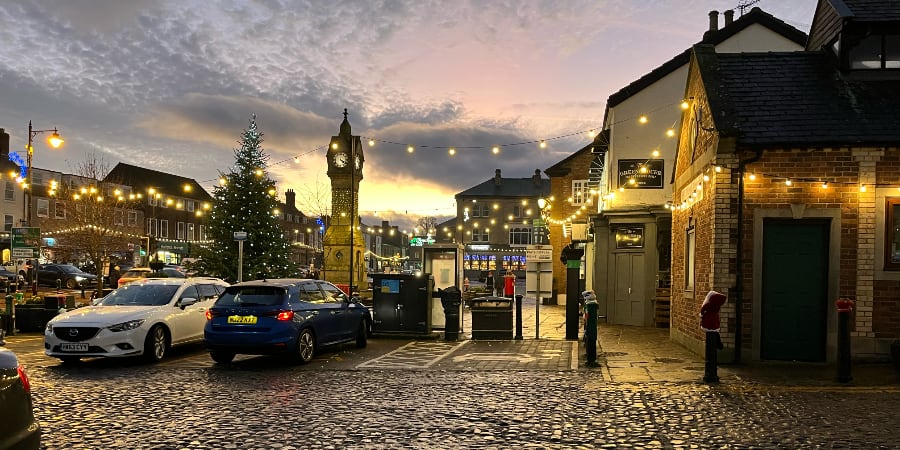
I do love an earnest end-of-year blog post, and I appreciate a quality summary of anything. I don’t have much time this year, and I’m low on energy, so instead here’s an earnest end-of-year list.
I did a light version in 2023, but one of my fleeting YouTube crushes this year extolled the benefits of keeping closer track of projects (so you know what you’ve actually done), and he was right. When I see how much shit I got done while thinking I was procrastinating, I feel a lot better.
Achievements and life events that I put my energy into (in chronological order):
- Started a new job
- Dad’s death and funeral
- Son went to Australia with a working visa
- Dealt with Dad’s estate and finances
- Cleared and sold Dad’s house
- Restarted my Patreon
- Migrated my website from Jekyll to Hugo
- Went to GP/physio for hip problems
- Joined the gym (and still going)
- Started meditating most mornings (and still going)
- Grew as a software engineering Team Leader
- Went on holiday to St Ives
- Wrote a short story and submitted it to Nightjar
- Travelled to Australia and saw my son
- Started practicing guitar with Museo app (and still going)
- Glute work: shock waves on tendons, dry needling into piriformis, rehab/prehab exercises
- Mother-in-law’s unexpected and ongoing illness
- Re-read and sorted through a partial draft of my next novel
- Watched and reviewed all the films of Dario Argento
- 31 horror films in December a.k.a. #31DaysofBlackXmas
- Logged 22 books in StoryGraph
- Logged 137 films in Letterboxd
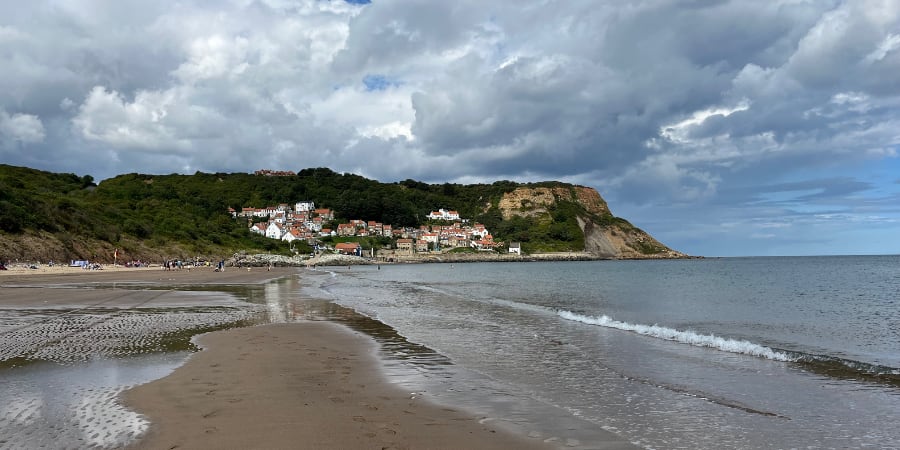
A true note
I called this website ‘Notes from the Peninsula’ with the intention of posting personal thoughts and mixing in reports from a character on a quixotic quest on the coast of an imagined peninsula. The latter hasn’t happened. Instead, I’ve continued to post mini reviews of horror films under the guise of my Dario Argento project and the made up social media challenge 31 Days of Black Xmas.
That’s partly because I don’t want to publish fiction in the same loosey-goosey way I post about my life and the films I’ve seen. I consider blog posts and Twitter Bluesky to be ephemeral. They are a way to process things. They will never get pulled into anything with an ISBN. Stories have more weight to them, at least in my head, because the publishing industry, competitions, submissions, all that, has always considered stories appearing on websites as being published (which is, of course, accurate), and so disqualifying from further attention, even if you threw it up on your website without much thought and nobody has read it.
I still like the idea of using a website as part of the reader’s story experience. It’d be there if people wanted more after finishing the ISBN’d works, it would be useful for marketing before and after publication, and it could even be part of the process of my writing as a whole. I believe Twitter gave The Complex its wings in 2019. Being a persona online is part of the game.
Vladimir Nabokov wrote the short novel Pnin in parallel with Lolita, which came out a year later. He wasn’t afraid of a little literary experimentation. Short stories can be playgrounds for voices, ideas, themes and stylistic choices, and so lay the groundwork for longer pieces. Ideas can pollinate each other. A theme can become more or less interesting over time. That aspect of my writing practice is currently weak.
I work in software, I started as a web designer, and I loved blogs when they took off, so it’s a natural extension for me to imagine a website, social media, blog posts, story fragments, short stories and novels as part of a creative ecosystem. That doesn’t mean it’ll work, it could very easily become a distraction from writing, but I haven’t given up on the idea yet.

Australia
October was a blur of holiday preparations, work dramas, and then boom, we were on the plane, digitally clutching almost forgotten eVisas, trying to use ridiculous neck pillows, and making ill-advised small talk with customs officers. Two weeks on the other side of the world staying with an old friend in Sydney and (too briefly) hosting our Perth-living son.
We’ve never had a holiday like it, and certainly not since the children were born. I felt young again out there. An October spring. Now I know what a cicada sounds like. I’ve driven the long road to Byron Bay and tried all the coffee shops. There were bookshops everywhere I turned. I drank so many flat whites I had to switch to long blacks. Everything went right. Unlikely parking spaces. Accidentally discovered perfect beaches. A humpback whale and her calf off Lady Bay.
There’s too much to try and write about. It was a holiday that I’ll remember when I’m old and can’t travel anywhere. It’s given me an appetite for more.
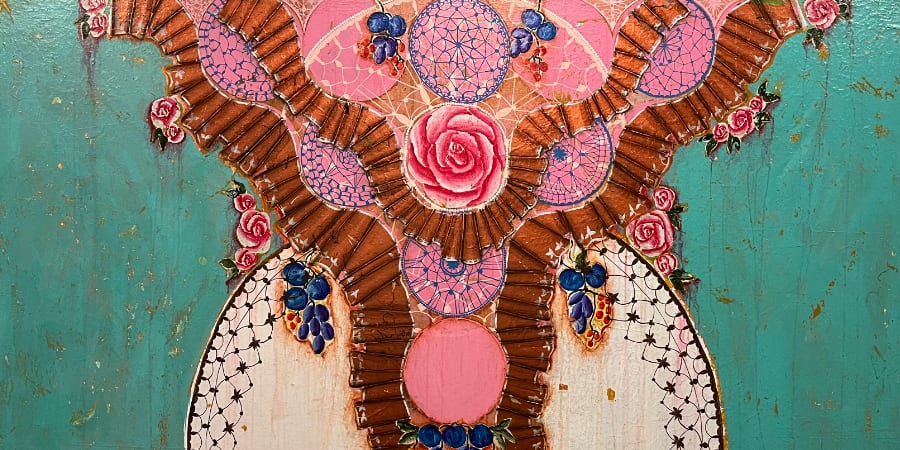
Spirals
Returning from holiday, I went into an overwhelm spiral, and I’m only just getting out of it. Nothing too serious, but frustrating nonetheless. Lots of loops are closing, but it’s taken me a while to acknowledge that, and they’re not yet completely closed—my father, his house, my hip pain, general work tumultuousness—life is different and will become more so.
For a couple of days I thought I was going to do #31DaysofHorror again, even though we’re travelling to Sydney, Australia, for the second half of October. I wasn’t thinking rationally. I just wanted to fill the empty spaces around me without knowing what I was doing. Got to keep busy, you know? Something doesn’t feel right, so I’ll watch a horror film. Luckily, I noticed, so we’re good.
The picture is of a collage by Brazilian artist Beatriz Milhazes, from her exhibition at Tate St Ives. The exhibition was called Maresias, which apparently means an Atlantic breeze, and lots of the other pieces fitted more into that idea, but this one stood out to me because it had a different energy. It’s called ‘O Rapaz, The Young Man’. I love the femininity of the phallic shape, and in person it’s really big, over six feet high. It commands the space.
Coming back from St Ives, the feelings of freedom, exploration and fun dissipated quickly. I knew I’d get the post-holiday blues, but that didn’t stop them coming. Busy blues. Hectic blues. Some of the damage was self inflicted, some from circumstance, but the horse is back in the stable, the phallus is back in the trousers, and the skies are clearing.
I want to finish the short story I’m writing before the end of this month and post it for my Patreon friends. It’s called The Box. More information soon.
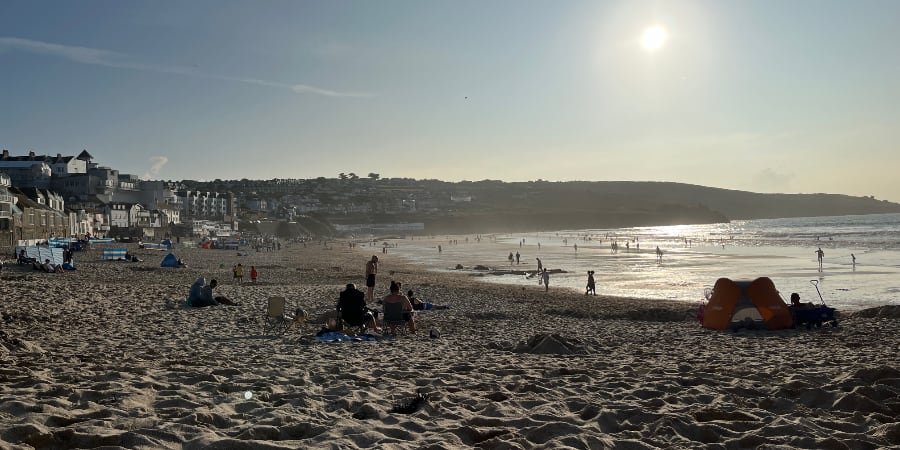
Sometimes in my groin, sometimes at the front of my right hip, sometimes deep in the buttock, the pain started with the long drives to Wales, then got worse when I started golf lessons. A Pilates machine debacle led me to Physio One, who suggested it might be hip arthritis, then never returned my calls. Physio Two said it was deep gluteal syndrome. He gave me exercises (that worked), then switched career to become a tree surgeon.
In May, the pain returned, so I found Physio Three who diagnosed gluteal tendinopathy. She also suggested I get a GP referral for a hip X-ray (which revealed I also had hip osteoarthritis).
Gluteal tendinopathy and hip osteoarthritis in a desk-bound homeworking software engineer have similar treatment plans. My glutes weren’t strong enough to do their job, so my inner thighs and quads were picking up the slack, which was part of the reason I was in pain. My tendons had degenerated because I wasn’t using them enough, and I then hammered them with too much exercise too quickly.
To repair my hip and leg ecosystem, I needed to engage my brain. The physio gave me some rules:
- Reduce daily activity until you find the baseline where symptoms have disappeared
- Any pain that is above 3/10 is the body’s message to do less (“reduce load”)
- Accept that rehabilitation of chronic tendinopathy can take 6-12 months, and shortcuts only delay progress
- Start with daily isometric exercises (holds), then add slow eccentric movements (repetitions)
- Keep walking, but increase distance slowly, reducing if pain is above 3/10 the next day
- Use the gym to safely add heavier loads to strength exercises, but obey the 3/10 rule
- When ready, progress to gentle plyometrics (e.g. low hops and jumping), then to sport-related movements, before returning to sport
The treatment plan requires consistency and control. Life doesn’t always allow that. Right now, I’m on holiday, in a flat on the third floor at the top of a steep hill. When we booked it, this was a good thing, but the reality is I’ve had a couple of miserable days recovering from asking my tender tendons to do too much. I probably overdid it in the gym in August, thinking I was fitter than I really was. Unlike muscles, tendons take twenty-four hours to complain, which is another complication. It can be a stop-start affair.
Four months in, I’m still in the strengthing phase. I haven’t yet reached the excitement of hopping. New exercises mean new stresses on my body. I can’t always tell what’s hurting and why. I also struggle with knowing which type and amount of pain is necessary and which is holding me back. It’s an ongoing physiological education. I’ve watched a lot of YouTube videos.
There’s little online about the mental health aspect of all this. Up to a year is a long time to recover from what the medical profession considers a common problem, and that’s if you stick to the treatment plan and pay rigorous attention to the signals your body is giving you. What if a person’s baseline activity level is below what’s required to do their job, or care for a loved one? I can’t imagine. In that I feel lucky.
EDIT: If you want to know how it worked out, here’s part two from January 2025.
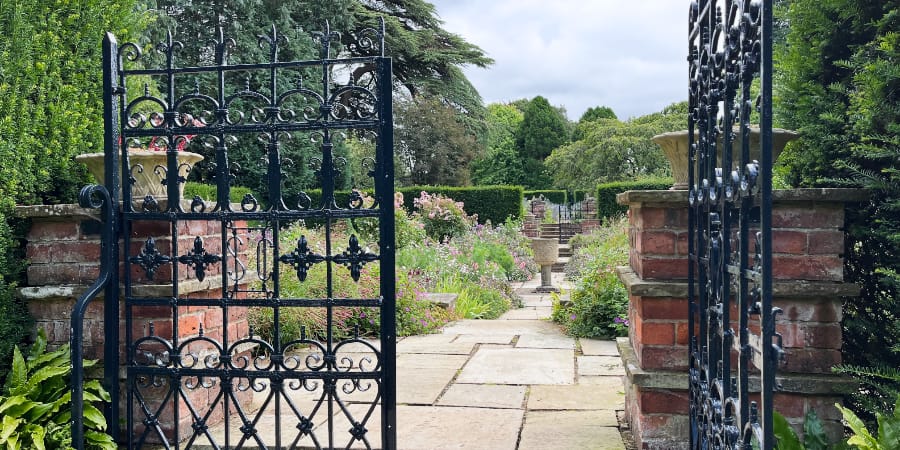
Something new
It’s almost the end of July. What’s been happening? The X-rays have confirmed I have moderate-to-advanced hip arthritis, but the physio has discharged me because I’m doing well enough to be left to build strength alone. My son has a “proper job” in his field in Australia, so he’ll be living there for the foreseeable future. I’m trying not to dwell on that, but he’s living the life he wants which makes me happy. Something else that makes me happy is that I’m not going to lose my job in the current wave of redundancies afflicting universities in the UK. Thank fuck. And we’re hoping to complete the sale of Dad’s house at the end of August.
Selling the house has become the marker for the end of the slew of unasked for changes that have come from the first half of the year. We’ve lost too many of our elders. Summer helps in the transition.
On the creative front, I dug out a short story I wrote for my Masters application in 2014, and I’m reworking it to publish on Patreon for those subscribed to the paid tier. I want to be true to its original energy and intention, but I’m a much better writer now, and I’m having fresh ideas about it. It’s exciting. I understand why I haven’t been writing, but now that I am engaged in a project again I can see the cost of having to put my attention elsewhere. Writing a story fulfils a part of me that can’t be satisfied any other way.
Much of this fresh energy comes from buying an iPad with an Apple Pencil. (I gave my father my last iPad because he wouldn’t buy another when his broke. That’s a nice circle to close.) It’s helped me think again about how I organise myself, take notes, do research, capture my thoughts, everything. I will always use a physical notebook and pen, but the iPad is giving me a new space to work in, between digital and analogue. Something new.

Changing
I’m six months into a new job. My father’s house is for sale. My son is living in Australia. My daughter is gearing up for GCSEs next year. My wife and I are looking at each other and thinking, this is the time we’ve been waiting for, and yet neither of us have clear plans. Her father died at the end of last year. She has a new job. There hasn’t been time to think about the bigger picture.
I’m writing (and reading) fiction again. I might have arthritis in my hips. I’ve set up a YouTube channel and restarted my Patreon account. A friend from university who I haven’t seen in twenty years died. I’ve finally established a meditation habit. The arthritis (if that’s what is is) might mean giving up my ideas of playing tennis again. There are opportunities and restrictions all around. The snowball is rolling and keeps getting bigger and faster. There is a wall ahead, but it’s out of sight, several decades away, or coming into sight this year, I don’t know.
The stakes feel higher. I’m in my fifties. This is natural. (I tell myself this.) People can die young, much younger than I am now, so my anxiety is laced with gratitude. I have a chance to take everything I’ve experienced, all the lessons I’ve learned, away from the pressures of establishing a home, a career, and raising children, to see what’s possible in the time I have left. I might have forty more years. I might have one. I don’t know. None of us knows.
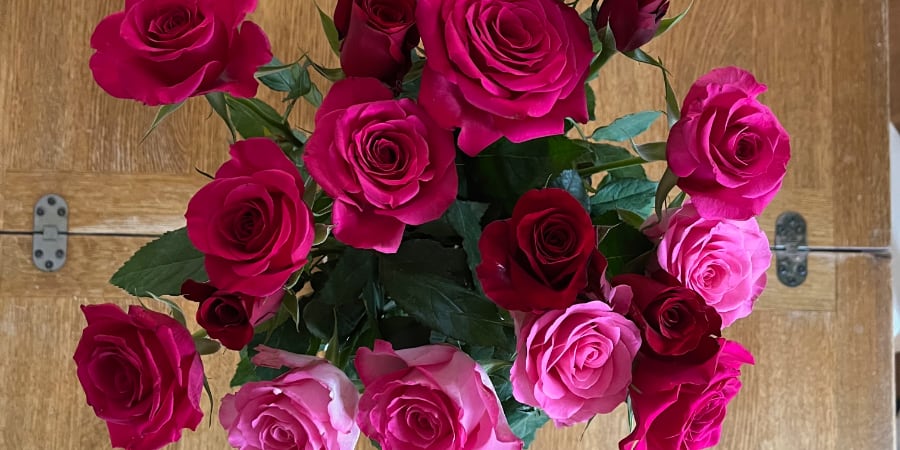
Darling buds
Four days off work! My plan was to not have a plan and trust I would do what I needed to do. It’s day two and I’m excited because things are changing — my glute tendons are healing (YES), my meditation habit has bedded in (now I miss it when I can’t do it), I’ve moved to using a black pen in my notebook for literary notes (to make them easier to find), I bought good pencils to get back into making notes in margins, my exercise clothes are all in one drawer (good morning yoga mat!) — the momentum is unmistakeable.
I’m making changes in my head with these small shifts. I wrote the word ‘studio’ on my white board a week ago, and that’s percolated into this energy I’m feeling which is about being focussed and mindful when doing the things that are important to me. In yoga they talk about bringing it all to the mat, and that’s what I think studio means to me. In writing, it’s the blank page, in cooking it’s a clean and organised kitchen counter. It’s a space and a mindset — a place to learn, study, practice and create. A place where you need to show up.
Patreon is alive again, and I’ve been thinking about what to do for the people on the Weird & Wonderful tier. I went through a period of buying a hardback novel once a month. Something new and hot off the press. The book that broke me was Ben Lerner’s 10:04, which at the time I couldn’t make head nor tail of. That was published in 2015 (didn’t expect that, but I shouldn’t be surprised, wow, nine years ago, fuck). I bought All Fours today, by Miranda July, thinking I would get back into that habit, and I’ll write about what I make of it for Weird & Wonderful members next month. It might become a thing, or it might not. Let’s see!
The WIP is alive too, which is nice, although writing hasn’t magically become easier in (let’s call it what it was) the break. There’s a lot of gunk in the mechanism. (Should that be the post title? Gunk in the mechanism? Um… no? Maybe?)
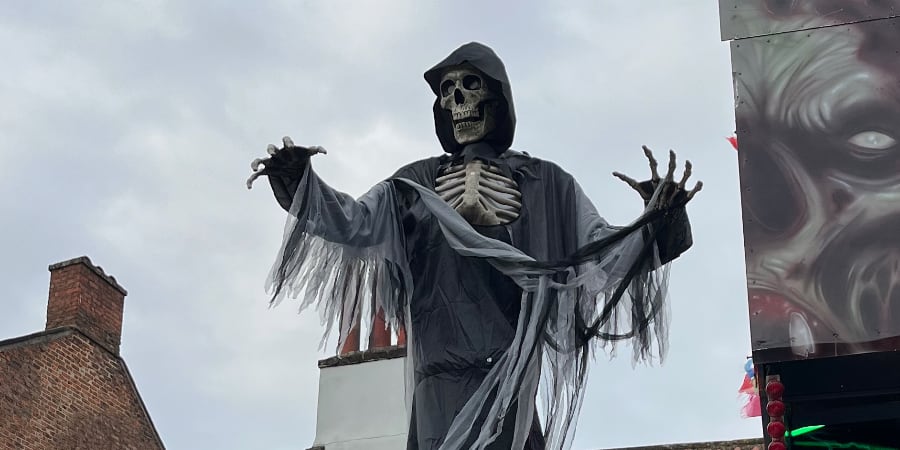
Impatience
Making art means making a mess. It means tidying up, organising, and discovering something in doing it. There are unexpected emotions. There are doubts and dead ends. There are technical problems. Many books are written about how people make art (or do anything creatively). Keeping moving, paying attention to what’s happening, making decisions, navigating squalls and storms, staying afloat — these are all part of it.
And it’s a lonely business if you’re not in a collective or a group. It’s lonely if you’re in one. You need to be able to handle ambiguity, incompleteness, uncertainty and abstractions. What’s inside wants to come out. Nature contains chaos. Mess can feel unsettling.
In writing software, developers prize efficiency, clarity and elegance, but people are organic — messy. Software programs talk to each other online twenty-four hours a day, all built by people, and at sufficient complexity software begins to look like an organism. This is part of the idea of artificial intelligence we hold in culture. At what point does the software we’ve written begin to act like the ghosts we’ve programmed into it?
Writing software is addictive. The problem-solving is addictive, user interfaces are addictive, the feedback loop of trying something, seeing it fail, trying something else, seeing it succeed, is addictive. If you want to lose eight hours in a flow state, programming is a great way to do it. It’s like an endless crossword or sudoku.
Many programmers like it that way and they’re not interested in the benefits (or negative effects) of the code they’re writing. They want it to be elegant, efficient, bug-free and done (and on to the next problem). As I get older, I’m finding that harder to tolerate in the people around me.
Part of me wants to make art and part of me wants to write software.
Editing prose engages the same part of my brain that fixes bugs in software. If I have an eight thousand word story, I can quickly make that a tight, elegant, efficient, bug-free, four thousand word story.
But, ironically given all the psychoanalytic psychotherapy I had, I find writing that eight thousand word story incredibly hard. Many people are the other way around, which makes me wonder what I’m doing wrong. I understand the value of my stream of consciousness thoughts, my dreams, and how my intuition can make connections. I know this. I should be programmed (!) for making things up by now without all this internal drama.
I’m impatient. It’s a deep-seated trait. It’s always in the background. I’ve been meditating every morning for six weeks now. Ten minutes with the teachers on Apple Fitness+. I wonder if that is why I’m starting to notice how impatient I feel. I’ve written many (many) times about slowing down.
Sometimes I think it’s because I’m getting older, but I was as impatient in my twenties. There’s always been this feeling that I’m going to miss out if I don’t move quickly. The gift is fleeting and then it’s gone.
That’s life. And that’s what it was like in my family growing up.
(Ah, we’re here again. Must it always be about my mother?)

Losing myself
I finally sorted the two big bags of books I brought back from Dad’s last weekend. He loved Stephen King, and he bought lots of King’s books as first edition UK hardbacks. I don’t currently have shelf space for this many books. I don’t know how much time it would take to read this many books.
Time has become a (falsely) scarce resource. There’s no time for fun. A stern look and, no, that doesn’t get you where you want to go, and no, not that book either, nor that film. Keep looking.
Losing myself in a book feels wasteful. Enjoying a trashy film feels dangerous. If I’m not careful, I’ll never be the successful writer I always dreamed of being (which hurts because it has truth to it, even knowing that success is my flexible friend).
If I lose myself in writing though, that’s good, because it’s creating something, a piece of art that didn’t exist, a piece of me that is not me. As a child, I could lose whole afternoons between the covers of a book. That was a sign of intelligence, sensitivity, but also a defence mechanism against family arguments. My mother taught me to numb myself with fats and sugars, sweet compensation for the difficulties of love.
Is the flow towards beauty, intimacy, or towards a hole in the ground? Am I connecting or avoiding?
Writing requires a diet of nutritious literary foodstuffs. Films contain drama, and drama is part of writing, but more important than drama in written fiction is language. Sentences. Paragraphs. The internal worlds of characters that a screen can’t show. In writing, there are no cameras to move, no actors to talk with, no special effects, no budgetary constraints — it’s all language. If it can be imagined, it can be written (and then re-imagined differently by every reader).
I’m getting lost in these thoughts. Dad had a talent for losing himself. He was impossible to know deeply. He had an astounding capacity for an internal life. That frightens me as much as it attracts me. I have the ability to do the same. I can make time disappear.
That’s my greatest fear. One day there will be no more time and that will be the end. I too will disappear. There’s too much life out there for me to lose myself in here. Books are only one aspect of life. There’s much more. I can lose myself without losing myself. Where am I heading when I am not lost?
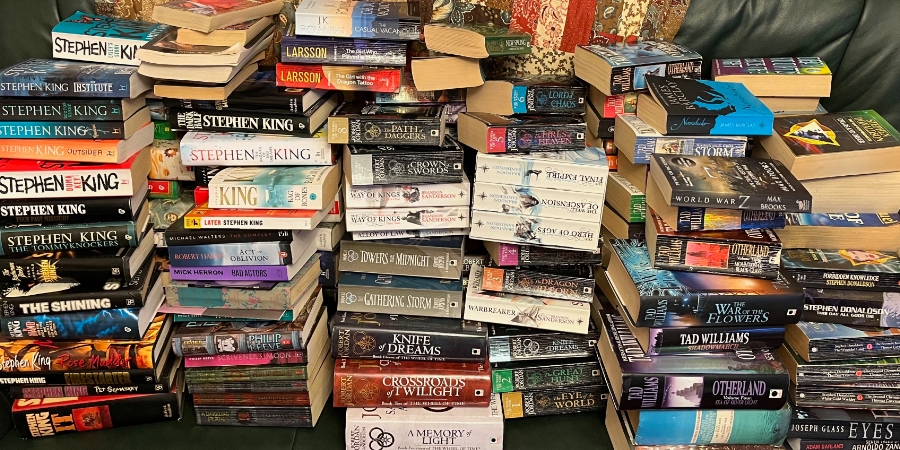
Back to the path
I spent the weekend before my father’s funeral sorting through his books. He had them on shelves in different rooms, but they were also tucked in drawers, stacked at the bottom of wardrobes and piled behind old televisions. Some went straight to the tip because of damage or being completely out of time, but there were also entire fantasy series, thrillers, horror, that people would still want today.
On a whim, I called in the local library, which is now community-run and needing funds, and I offered them his collection, and amazingly they said yes. Taibach Library is where he took me for my first library tickets when I was five, so it’s part of my story as well as is. He would love that his books are going back into his community.
Dad’s death wiped clean my imagined year ahead and brought up some big questions, like why bother doing anything if we decay to nothing? But his energy lingers in his objects and spaces. When I hold the TV remote I see him in his chair, and when I pull out his books I can see him smile. I’ve created these intense associations from decades of being with him: lottery numbers, glasses cases, his cereal bowl, the knife he preferred, his favourite radio station, the way he liked the recycling bins to be put out, the bird table, fluorescent tubed lighting in the kitchen, golf clubs, his favourite pruners and gardening gloves. I project my memories of him onto the space through the objects I see.
That’s like reading. We turn sentences into our own version of what the author imagined. In that way, our lives are a gift to everyone who spends time with us, because they create versions of us for themselves. Both my parents live on in me as memories I can talk with whenever I want.
The path I’d imagined for 2024 was vague. Dad’s deteriorating health was a constant threat to any plans, so I found myself being reactive and anxious. Sometimes life needs us to step off the path we think we’re on and go into the woods. I lost my literary ambitions for a while. It’s been ten years since I enrolled for the creative writing MA, and five years since The Complex was published. Dad won’t read my next book. His reaction to The Complex was that he liked it. That was it. He wasn’t one to articulate feelings, especially love, so that had to be enough, but it’s a tender spot, because part of me was writing for his approval.
Anyway, I had a dream where I wanted to take an important kick in a rugby match, but an old friend with more natural talent pointed out that I didn’t have the power. I knew they were right, and that I had to get serious and practice. That’s about as literal as dreams can get short of dreaming that your house is on fire and waking up to find your house on fire.

My father died
Dad died last week. He was eighty-eight. Looking back, it was a miracle we got him home from hospital for one final Christmas. A week into the new year he fell and was taken back in with an infection, and after twelve months of fighting the symptoms of heart failure, his time was finally up.
His chair is empty and the TV is off. I stayed in Wales for a couple of days and threw myself into the admin because it was something I could do to help and as a way to process the loss. I went through his drawers for bills and bank accounts details and insurances and pensions with focussed ferocity. Then I came home and spent time with my own family. Most things can be done from a distance. I’m a six-hour drive away, and I’ve always wished I was closer. He was independent to the very end. We got him to the finish line as he wanted. I’m proud of that.
I’m tired but coming to terms with things. It was a good ending. He had a long life, he was loved, and he left peacefully. The year is going to be different to how I imagined.

Nostalgia
- 07.01: PRISCILLA (2023), dir. Sofia Coppola (C)
- 10.01: OLD HENRY (2021), dir. Potsy Ponciroli
I’m in Wales at short notice because Dad’s been admitted into hospital. The co-morbidities have gathered and decided to strike. He’s in bad shape. I can see him at 2pm and 6pm, and around these visiting times I’m looking for peaceful, distracting activities. This morning I went to Swansea for a coffee and took photographs of the buildings around the castle. Then I drove to Mumbles and walked up to the house I used to rent an attic room in before dropping to the seafront. As ever, ghosts and shadows walk with me in the absence of real people. Swansea is a lonely comfort.
Nostalgia turns quickly to poison once the immediate comfort has passed. Sofia Coppola creates an exquisite rendition of fifties life in Priscilla that is without dirt or dust—no unwashed cars or clothes here—designed to pull you in and keep you there. The performances are similarly immaculate, but the problem with the perfection of nostalgia is that it lacks soul. We want to be back somewhere that never existed. This isn’t Elvis or Priscilla as they were, it’s a story told through sensual details, costumes, sounds, imagined dialogue. It’s fine. The best use of nostalgia is to let it show what is missing now. From that you can create something new.
Artists, especially filmmakers and writers, can recreate the past in their work, and nostalgia can be part of that creative energy but doesn’t have to be. There’s little nostalgia in Old Henry. It’s set in the rural midwest, in 1906, where the Wild West overlaps in history with the start of modern times. This 1906 is dirty and brutal. A grizzled farmer takes in an injured man carrying a satchel full of money, but the chasing gang catch up with him, and a standoff ensues. The farmer’s son wants to fight, but we learn the farmer has a violent past of his own. Old Henry is as exquisitely crafted as Priscilla, but more realistic, with a father-son relationship that sucked me in, and a glorious twist going into the final act that made me laugh out loud. Tim Blake Nelson is astonishing.
Note to self: acknowledge what you need and make something new to satisfy that need.